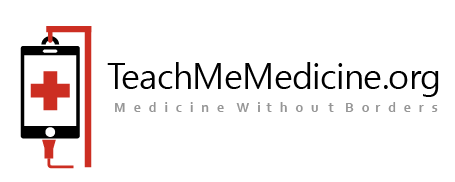Genomics Medicine Curriculum – Students will have to learn and be tested on the following information laid out in the curriculum*. All information can be accessed in the resources and lecture videos listed below the curriculum.
Capstone Experience
Students will choose a mentor and complete a clinical or research project focusing on an aspect of genomic medicine. Additional components include genomic case reports and online journal club discussions. This experience will culminate in a written portfolio and public presentation of the Capstone experience.
Assessments
Each course will assess attainment of learning objectives (below) through a combination of assigned homework, papers or projects, and examinations. The mastery of all core competencies will be assessed by two readers of the Capstone portfolio (the research mentor and one other program faculty member) and their evaluation of the oral presentation of that portfolio.
Mission and Learning Objectives
The MSGM curriculum is designed to provide mastery of the 18 Core Competencies in Genetics Essential for All Health Professionals as outlined by the National Coalition for Health Professional Education in Genetics (NCHPEG, 2007) plus additional competencies specifically directed towards genomic medicine and anticipated new opportunities that will become available during the course of training.
Knowledge
- basic human genetics terminology
- the basic patterns of biological inheritance and variation, both within families and within populations
- how identification of disease-associated genetic variations facilitates development of prevention, diagnosis, and treatment options
- the importance of family history (minimum three generations) in assessing predisposition to disease
- the interaction of genetic, environmental, and behavioral factors in predisposition to disease, onset of disease, response to treatment, and maintenance of health
- the difference between clinical diagnosis of disease and identification of genetic predisposition to disease (genetic variation is not strictly correlated with disease manifestation)
- the various factors that influence the client’s ability to use genetic information and services, for example, ethnicity, culture, related health beliefs, ability to pay, and health literacy
- the potential physical and/or psychosocial benefits, limitations, and risks of genetic information for individuals, family members, and communities
- the resources available to assist clients seeking genetic information or services, including the types of genetics professionals available and their diverse responsibilities
- the ethical, legal and social issues related to genetic testing and recording of genetic information (e.g., privacy, the potential for genetic discrimination in health insurance and employment)
- one’s professional role in the referral to or provision of genetics services, and in follow-up for those services
Basic Genetic Skills
- gather and use clinically genetic family history information, including at minimum a three-generation history
- identify and refer clients who might benefit from genetic services or from consultation with other professionals for management of issues related to a genetic diagnosis
- explain effectively the reasons for and benefits of genetic services
- use information technology to obtain credible, current information about genetics
- assure that the informed-consent process for genetic testing includes appropriate information about the potential risks, benefits, and limitations of the test in question
Genomic Skills
- understand next-generation sequencing
- understand basic bioinformatics and key terms important for clinical use
- understand basic pharmacogenetics terms important for informed clinical use
Attitudes
- appreciate the sensitivity of genetic information and the need for privacy and confidentiality
- understand the added concerns brought forward by the availability of clinical high-throughput sequencing
- appreciate the difference in cultural approaches to genetic information
- seek coordination and collaboration with an interdisciplinary team of health professionals
Spring Semester, Year 1 (6 credits)
Fundamentals of Genomic Medicine (full semester – 2 credits)
This course provides an introduction to basic concepts, terminology, and clinical skills important in genomic medicine.
Genome Ethics and Public Policy (full semester – 2 credits)
This course builds on Fundamentals of Genomic Medicine, taking a case-based approach to discussing ethical, legal and social issues related to genomic medicine.
Clinical Applications of Genomic Medicine I (full semester – 2 credits)
The Clinical Applications of Genomic Medicine series provides genomic medicine case studies and systems-based learning paralleling the medical school core curriculum.
Fall, Year 2 (7 credits)
Computational Methods for Genomic Medicine (full semester – 3 credits)
This course will build on the experience gained in Genomic Medicine Laboratory to provide instruction on basic biostatistical terminologies and tests for clinical genetics data and risk assessment and bioinformatics tools used to provide medical annotation and clinical interpretation.
Clinical Applications of Genomic Medicine II (full semester – 3 credits)
The Clinical Applications of Genomic Medicine series provides genomic medicine case studies and systems-based learning paralleling the medical school core curriculum. Topics covered in the fall include respiratory system, nephrology, gastroenterology and nutrition.
Research Ethics (full semester- 1 credit)
Prior to conducting research as part of the genomic practicum, students will receive training in the responsible conduct of research, protection of human subjects, and obtaining regulatory approval.
Spring, Year 2 (7 credits)
Clinical Applications of Genomic Medicine III (full semester – 4 credits)
The Clinical Applications of Genomic Medicine series provides genomic medicine case studies and systems-based learning paralleling the medical school core curriculum.
Genomic Medicine Laboratory (full semester – 3 credits)
Students will rotate in the molecular genetics and biochemical genetics diagnostic laboratories, gaining experience with genomic testing in a clinical setting and interpretation and communication of results.
Years 3 & 4 (10 credits)
Genomic Medicine Clerkship (two 2-week sessions – 2 credits each session)
Students will complete an elective clerkship in genomic medicine or medical genetics completed as part of the MD curriculum.
Capstone Experience (6 credits)
Students will choose a mentor and complete a clinical or research project focusing on an aspect of genomic medicine. Additional components include genomic case reports and online journal club discussions. This experience will culminate in a written portfolio and public presentation of the Capstone experience.
*Genomics Medicine Curriculum – This curriculum is a curriculum formed by the University of Miami-Miller School of Medicine.
